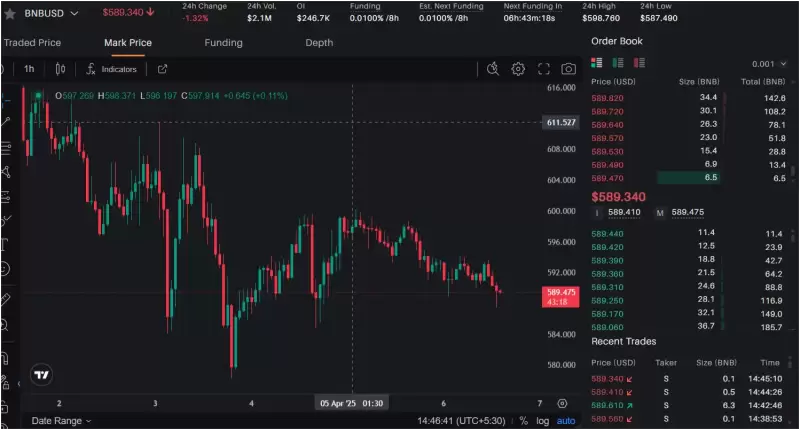 |
|
 |
|
 |
|
 |
|
 |
|
 |
|
 |
|
 |
|
 |
|
 |
|
 |
|
 |
|
 |
|
 |
|
 |
|
Cryptocurrency News Articles
How to Stake Cosmos (ATOM) and Earn Up to 21% APY Rewards
Apr 17, 2025 at 11:36 pm
Cosmos (ATOM) is a top 50 cryptocurrency with a market cap of over $1 billion that can be staked for passive income.

Cosmos (ATOM) is a top 50 cryptocurrency with a market cap of over $1 billion that can be staked for passive income. Cosmos staking allows ATOM holders to earn rewards of up to 21% APY while contributing to the security of the network.
This guide will break down everything you need to know when staking Cosmos ATOM, including step-by-step instructions on how to stake ATOM, estimated APYs, and wallet recommendations.
How to Stake Cosmos (ATOM)
Staking ATOM is straightforward; simply follow these four steps:
What is Cosmos (ATOM)?
Cosmos is a decentralized network created to tackle one of crypto’s “hardest problems” by enabling straightforward interoperability between blockchains. Founded by Jae Kwon and Ethan Buchman in 2014, the Cosmos blockchain uses the Inter-Blockchain Communication (IBC) protocol to bridge the gap between isolated chains, allowing independent networks to exchange assets securely.
This interoperability is powered by the Cosmos SDK (software development kit), which is a framework that enables the creation of custom blockchains. The SDK works by providing developers with pre-built toolkits that remove the need to build base-level blockchain solutions.
Some modules provided by the SDK include the most common aspects of blockchains, like staking and governance. Binance Smart Chain (BSC) and Terra are some of the blockchains that have integrated Cosmos technology to enhance connectivity within their ecosystems.
Powering the Cosmos network is its native token, ATOM, which has multiple functions. ATOM is used to pay for transaction fees on the network of around $0.01, participate in governance, and, most importantly, secure the network through staking. This is done by 180 validators that authorize transactions and propose new blocks.
Cosmos uses the Proof-of-Stake (PoS) consensus mechanism through the delegated-proof-of-stake (DPoS) concept. It does this via Tendermint Core, a key element within the Cosmos Hub that enables the processing of over 10,000 transactions per second (TPS), making it one of the most efficient networks in the industry.
Additionally, Cosmos continues to expand its partnerships, including a recent collaboration with Kava. Kava is a DeFi platform leveraging the Cosmos SDK to provide secure lending and borrowing solutions. Tether (USDT) recently opted to use Kava as its gateway into the Cosmos ecosystem to bring stability to USDT users on the Cosmos Hub.
Such partnerships highlight Cosmos’ role in blockchain interoperability, solidifying its status as the “Internet of Blockchains”. This has resulted in ATOM cementing its position as a top 50 crypto, trading at $4.07, with a $1.59 billion market cap. This comes despite the token being down by over 90% from its peak of $44.70.
How Does Cosmos Staking Work?
ATOM staking is centered around validators that process transactions and maintain network security, meaning the first step is picking the right one. There are roughly 180 validators on Cosmos involved in block production, and their reputation depends on uptime, performance, and governance participation.
When picking a validator, start by considering its voting power. High voting power means the community trusts this validator; however, if all delegators use the largest validators, the network becomes more centralized. Diversifying validator use can therefore aid the network. Cosmostation, for example, has a voting power of 4.81%, while Figment is at 3.13% on the network.
The next factor is the fees. Each validator sets a commission rate that determines the percentage of staking rewards they take before distributing earnings to stakers. For instance, Cosmostation offers an 18.06% APY with a low commission fee of 5%, while Figment’s fee is slightly higher, 9%, with reward rates of 17.73%.
It is also important to look at the number of ATOM tokens this validator has self-bonded. The more tokens staked by the validator suggest that they are willing to take on greater risk and not only rely on delegators. Cosmostation currently has the most staked at 11.89 million, 33,000 of which is self-bonded.
After buying ATOM and choosing a validator to delegate your tokens to, validators will give delegators (stakers) a portion of the ATOM rewards generated from fees and network inflation. The staking rewards vary depending on network activity and the platform provider, but in the right circumstances, they can result in up to a 21% annual percentage yield (APY).
The Cosmos network uses a slashing mechanism to penalize validators who act maliciously or fail to uphold network standards. Slashing can occur due to downtime (if a validator fails to sign blocks) or double signing (if a validator attempts to validate conflicting transactions). When slashing happens, both the validator and its delegators lose a portion of
Disclaimer:info@kdj.com
The information provided is not trading advice. kdj.com does not assume any responsibility for any investments made based on the information provided in this article. Cryptocurrencies are highly volatile and it is highly recommended that you invest with caution after thorough research!
If you believe that the content used on this website infringes your copyright, please contact us immediately (info@kdj.com) and we will delete it promptly.
-

-

-

-

-

-

- Fetch.ai (FET) Token Powering a Decentralized AI and Blockchain Platform, Continues Its Impressive Upward Trajectory
- Apr 19, 2025 at 02:35 pm
- Fetch.ai (FET), a token powering a decentralized AI and blockchain platform, continues its impressive upward trajectory and up by almost 12% over the past week.
-

-

- Coinbase Global (NASDAQ:COIN) had its price objective dropped by stock analysts at Rosenblatt Securities from $305.00 to $290.00
- Apr 19, 2025 at 02:30 pm
- Coinbase Global (NASDAQ:COIN) had its price objective dropped by stock analysts at Rosenblatt Securities from $305.00 to $290.00 in a report issued on Thursday,Benzinga reports.
-






























































